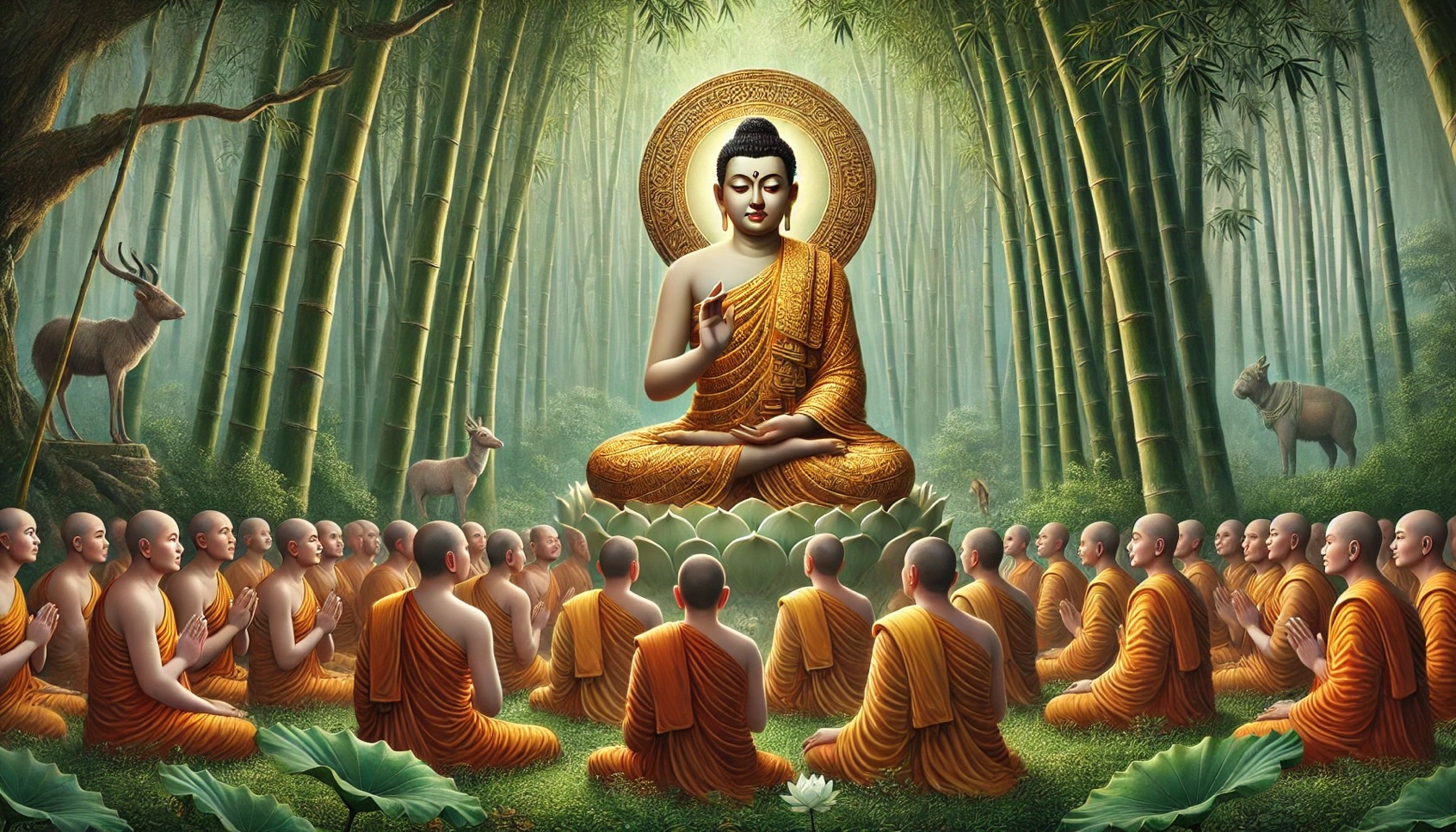
Date: 05/04/2024 05/05/2024
Location: Star Lake Meditation Center
Teacher: Otto Huang
Dharma Talk
Like Being Struck by Two Poison Arrows
Once, Buddha was in the bamboo grove of Kalanda, north of the capital Rajagaha of the Magadha kingdom, and he said to the monks:
“Monks! Ordinary people experience feelings of pleasure, pain, and neither pain nor pleasure, and so do the holy disciples who have practiced and realized the teachings. What, then, is the distinct difference between them?”
“Lord! Your teachings are the source and guide of our learning of the true Dharma. Please explain to us, so we may follow and practice your teachings!” the monks requested.
“Monks! When ordinary people encounter various physical pains or even life-threatening situations, their minds uncontrollably give rise to sorrow, lamentation, and distress, followed by anger and confusion, losing their reason. At this moment, two kinds of feelings proliferate and spread: the ‘physical feeling’ and the ‘mental feeling’. This situation is like being struck by one poison arrow and then immediately by a second, resulting in a double dose of suffering. Why is that? It’s because of ordinary people’s ignorance, which makes them indulge in pleasure without recognizing they have become slaves to craving and irritation; in pain, they become angry and displeased, becoming slaves to aversion and irritation; in neutral states, they are unclear and ignorant of the true nature, causes, cessation, and the dangers of clinging to these feelings, becoming slaves to delusion without realizing it. Thus, when they are happy, they are bound by happiness; when in pain, they are bound by pain; even in neutral states, they are bound, deeply mired in greed, aversion, and delusion, ensnared by birth, aging, sickness, death, and sorrow.
Monks! It’s different for the holy disciples who have practiced and realized the teachings. When they face physical pain or even life-threatening situations, they do not succumb to sorrow, lamentation, distress, anger, or confusion, thus maintaining their reason. At this time, they only experience the ‘physical feeling’ without the ‘mental feeling’. This situation is like being struck by only one poison arrow, not the second. When they experience pleasure, their minds are not attached, so they do not become slaves to craving and aversion; when in pain, their minds are not attached, so they do not become slaves to aversion; in neutral states, they truly understand the nature, causes, cessation, and the need to relinquish these feelings, not becoming slaves to delusion. Thus, when they experience pleasure, they are not bound by it; when in pain, they are not bound by it; even in neutral states, they are not bound by it, thus being liberated from greed, aversion, and delusion, and not ensnared by birth, aging, sickness, death, and sorrow.”

